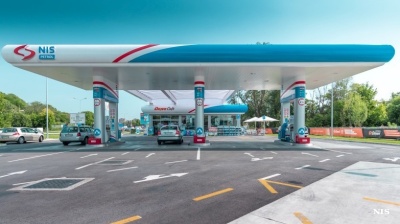Serbian President Aleksandar Vucic spoke with Russian President Vladimir Putin over the phone on October 20, in their first direct communication in over two and a half years. Vucic used the opportunity to reaffirm Serbia's opposition to sanctions, a stance he has maintained since the beginning of the war in Ukraine.
The conversation signals a renewal of direct diplomatic communication between the two leaders, amid growing claims that Serbia is shifting its foreign policy westward. In fact, Serbia is doing business as usual, keeping its hand in with everyone, while trying to show the West that it remains committed to EU membership.
In recent months, analysts have been pointing to signs that Belgrade may be distancing itself from the Kremlin, citing Serbia's acquisition of French Rafale fighter jets in August and the signing of a strategic energy partnership with the EU in July. Vucic also declined Putin’s invitation to attend the BRICS summit in Kazan this week, which many interpreted as a snub to Putin.
For the last two and a half years, Vucic was giving Putin the cold shoulder. But his Deputy Prime Minister Aleksandar Vulin was making regular visits to Moscow. This has allowed Vucic to play a game of good cop, bad cop, presenting himself as the sensible, pro-European leader to the West, while ensuring that Serbia maintained its strategic alliance with Russia.
Vulin’s latest trip to Russia was to commemorate the Belgrade Offensive, a World War II operation in which Soviet and Yugoslav forces jointly liberated the capital from Axis control. Such anniversaries underscore the deep historical ties between the two countries, dating back to Imperial Russia’s support for Serbia during the Ottoman period and Tsar Nicholas II’s intervention on behalf of Serbia during World War I.
History has fostered a strong pro-Russian sentiment among the Serbian population, making it politically difficult for any government in Belgrade to completely sever ties with Moscow. Russia also remains an important ally on the international stage, using its United Nations Security Council vote to support Serbia’s claim of sovereignty over Kosovo. During the call, Vucic reportedly thanked Putin for Russia’s support on various international issues, including its stance on the recent UN resolution on Srebrenica.
But perhaps the most significant factor binding Serbia to the Kremlin is its dependence on Russian gas. Despite recent efforts by Serbia to diversify its energy supply, including constructing a gas interconnector with Bulgaria to secure access to Azeri gas, Russia remains its dominant energy provider.
During Sunday’s phone call, Vucic expressed gratitude for Russia's continued provision of natural gas to Serbia, underscoring that favourable terms had been secured for this year, including an increase in gas supply volumes. Serbia’s state-owned gas provider, Srbijagas, reached an agreement with Gazprom on October 9 to increase daily gas deliveries during the winter from 6mn cubic meters to 11mn.
As long as Serbia remains dependent on Russia for heating its population, it will continue to foster good relations with the Kremlin. At the same time, Serbia will continue to court Brussels and advance its European membership aspirations. And so, in the near term, Serbia will remain balancing on its diplomatic tightrope.
News

Tensions rise in Serbia as protesters clash outside parliament
The confrontation followed a massive anti-government demonstration in Novi Sad on November 1.

Russia launches Khabarovsk nuclear submarine designed to deploy nuclear-capable Poseidon drones
Russia has launched a new strategic nuclear submarine, the Khabarovsk, which is capable of carrying a dozen of the Kremlin’s recently unveiled nuclear-powered Poseidon torpedo—a next-generation weapons system that Putin called "unstoppable."

Pashinyan urges end to ‘Soviet KGB worldview’ in Armenian-Azerbaijani relations
In an animated speech, Armenian Prime Minister Nikol Pashinyan called for a fundamental reset in the way Armenians and Azerbaijanis perceive one another, urging both nations to move beyond Cold War-era "KGB" mentalities are stil at play.

APEC meeting closes in South Korea, WTO dead and buried
This was not a summit. It was a eulogy for the WTO, and APEC just lowered the flag to half-mast.



